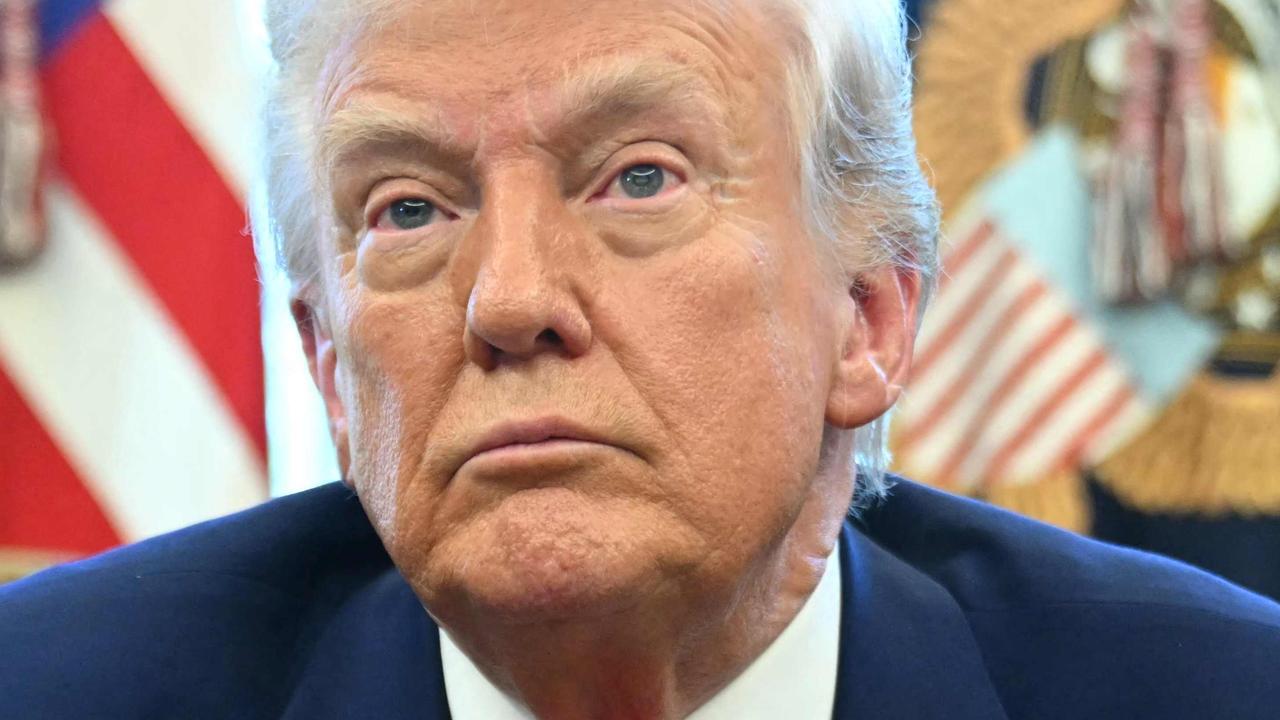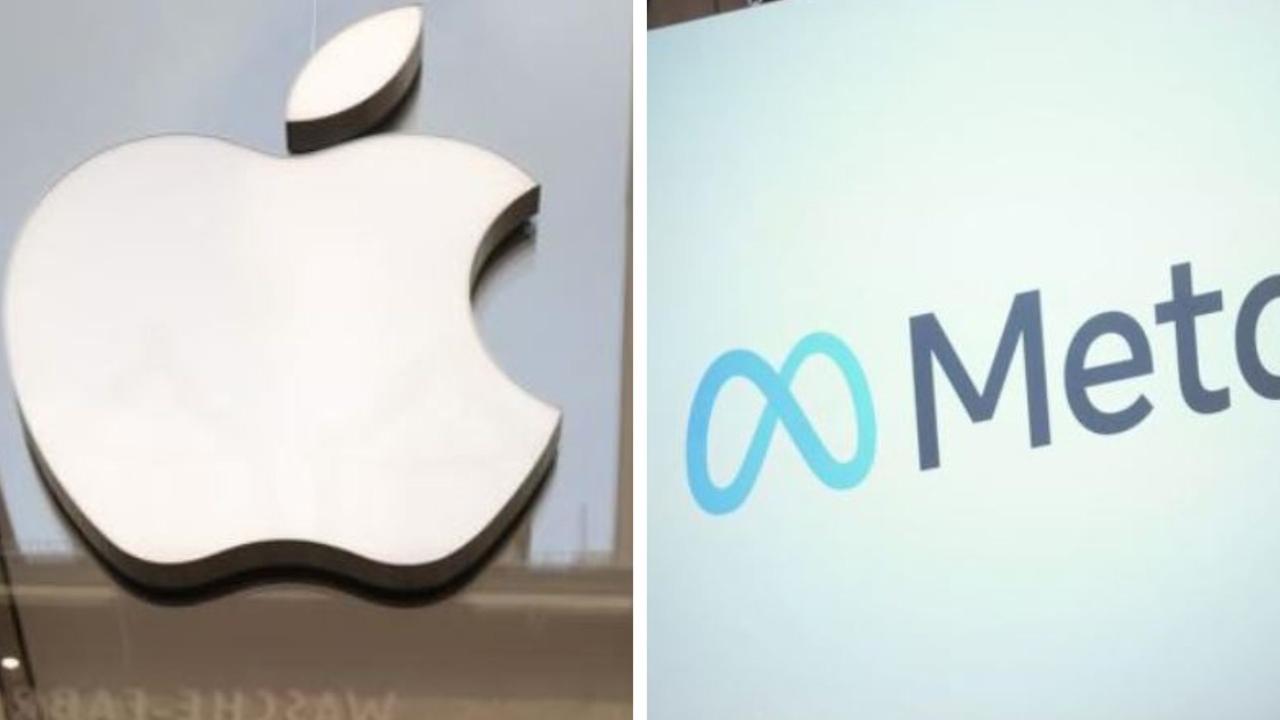Elon Musk given access to Treasury payments system; Canada declares war over Donald Trump’s tariffs
The Trump administration has given billionaire Elon Musk unprecedented access to a sensitive payments system, sparking an uproar, as Canada reacts to Donald Trump’s tough tariffs.
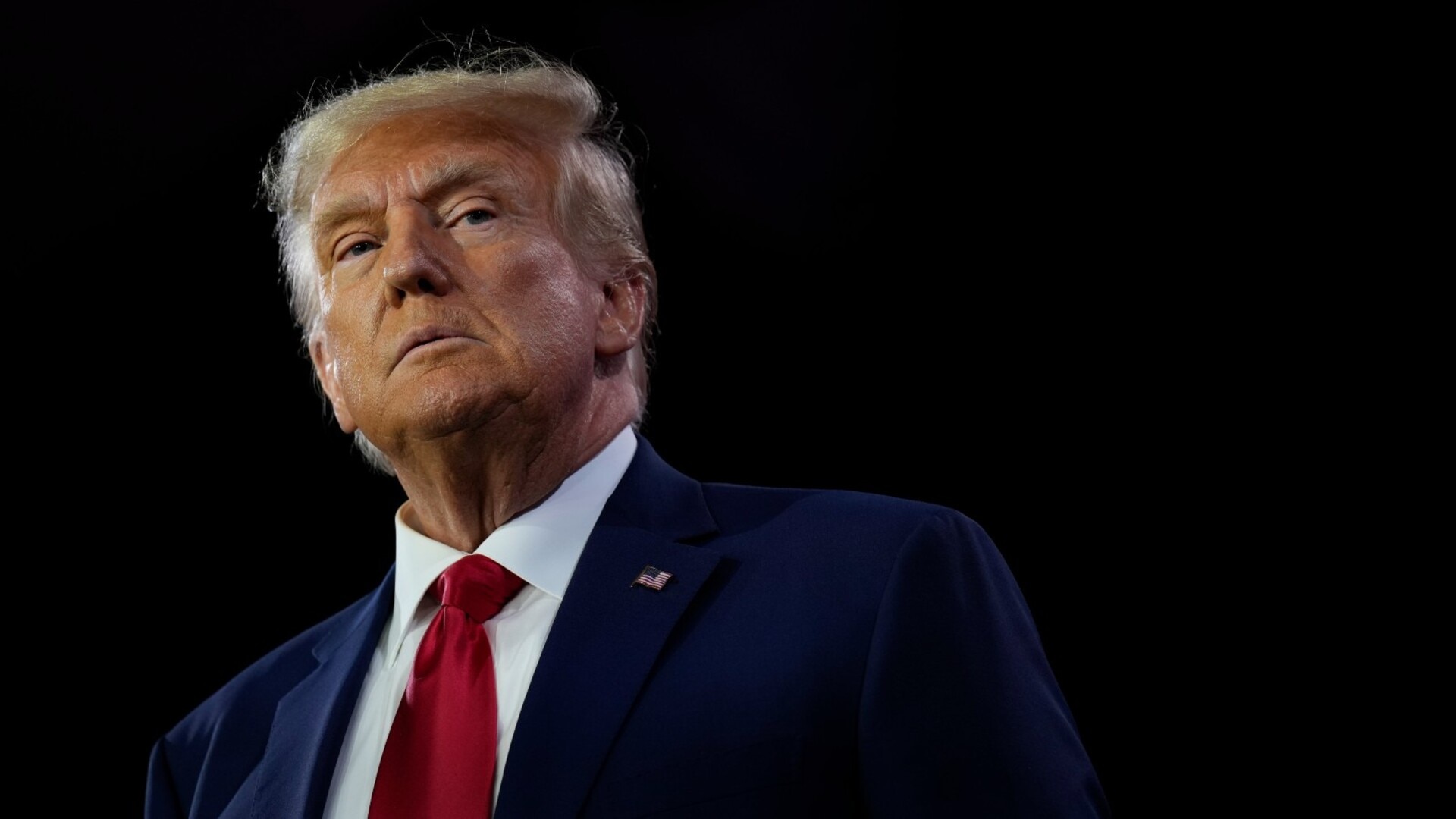
World
Don't miss out on the headlines from World. Followed categories will be added to My News.
The Trump administration has given billionaire Elon Musk and his deputies access to a sensitive federal payments system that controls the flow of trillions of dollars in government funds every year.
Treasury Secretary Scott Bessent has granted members of Mr Musk’s Department of Government Efficiency (DOGE) access to a powerful tool to monitor and possibly limit government spending, The New York Times reports.
It was not immediately clear why Mr Musk, who is not officially a government employee, wanted access to the system, which handles around $US5trillion annually, but it could offer Mr Trump another means to target wasteful spending.
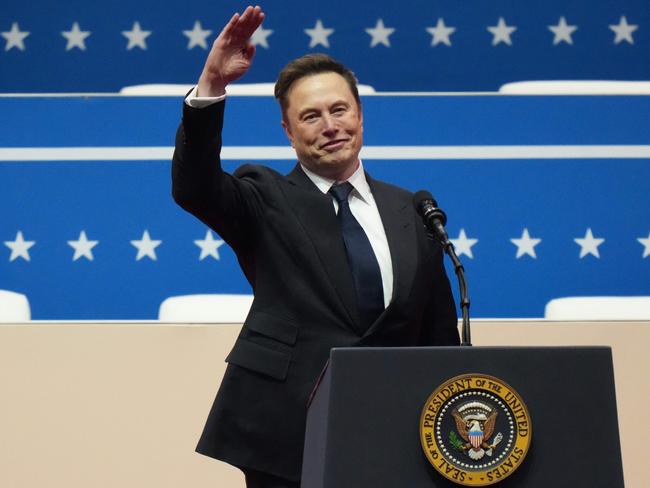
The access to the payment system was granted on the same day that a longtime Treasury official named David Lebryk was put on administrative leave and suddenly retired, The New York Times reported.
The newspaper said Mr Lebryk had strongly resisted allowing “Musk’s lieutenants into the department’s payment system, which sends out money on behalf of the entire federal government”.
FOLLOW UPDATES BELOW:
CANADA TARIFFS: GOVERNMENT TO FILE WTO CLAIM
The Canadian government will file a World Trade Organisation claim against US President Donald Trump’s tariffs and also seek redress under a regional free trade deal, a Canadian official said.
“The Canadian government clearly considers these tariffs to be a violation of trade commitments that the United States has taken,” the official, speaking on condition of anonymity, told a briefing.
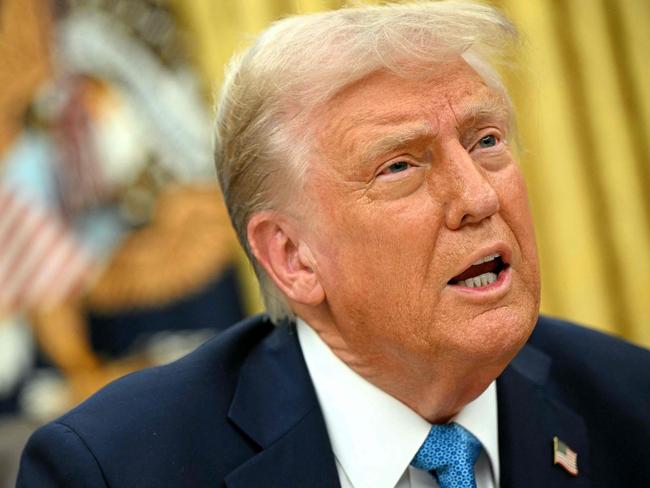
After weeks of threats, Mr Trump on Saturday signed off on 25 percent tariffs on all Canadian imports except energy resources, which will be hit with a 10 percent levy.
“We will obviously pursue the legal recourse that we believe we have through the agreements that we share with the United States,” the official said, citing the WTO and US-MexicoCanada
agreement (CUSMA) that Mr Trump himself signed in 2018.
A review of the pact, which a Canadian official called a “gold standard agreement,” was due to be held next year.
TRUMP DOUBLES DOWN ON TARIFFS
Mr Trump said that Americans may feel economic “pain” from his tariffs on key trading partners, but argued it would be “worth the price” to secure US interests.
“Will there be some pain? Yes, maybe (and maybe not!)” Mr Trump wrote in all-caps on his Truth social media platform, a day after signing off on tariffs on Mexico, Canada and China over illegal immigration and drug trafficking concerns.
“But we will Make America Great Again, and it will all be worth the price that must be paid,” he added.
Mr Trump’s comments came shortly after the European Union criticised his decision to slap import tariffs on major US trading partners, calling the move “hurtful to all sides.”
“The European Union regrets the US decision to impose tariffs on Canada, Mexico, and China,” said a spokesman for the European Commission.
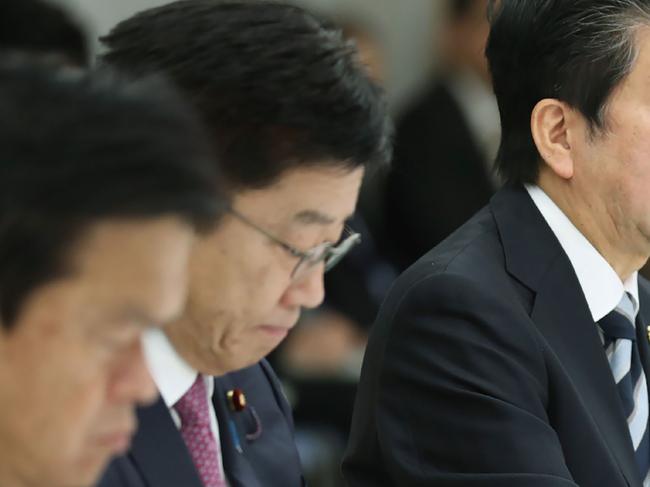
Japan has also signalled they are “deeply concerned” about the possible repercussions on global trade.
“We’re deeply concerned about how these tariffs could affect the world’s economy,” Japanese Finance Minister Katsunobu Kato told a Sunday show on Fuji TV.
Fuji TV said Mr Kato also stressed the need to “thoroughly assess” the possible effects of Trump’s tariffs policy on the foreign exchange market.
“Japan needs to scrutinise these policies and their effects, and take appropriate measures,” Mr Kato was quoted by Fuji TV as saying.
CANADA AND MEXICO FIGHT BACK
Canada and Mexico earlier joined forces to fight back against the tariffs, with Canadian Prime Minsiter Justin Trudeau warning the move would fracture longstanding ties between his country and the US.
“We’re certainly not looking to escalate. But we will stand up for Canada, for Canadians, for Canadian jobs,” said Mr Trudeau.
The tariffs will apply to “everyday items” such as American beer, wine and bourbon as well as fruits, vegetables, consumer appliances, lumber and plastics, and “much, much more”, said Mr Trudeau.
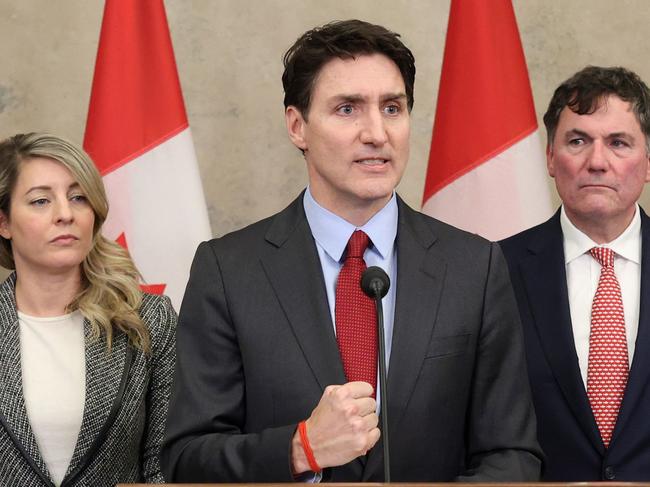
The New York Post reported that Mr Trudeau revealed he and Mexican President Claudia Sheinbaum Pardo had agreed to work together to push back against Trump’s long-awaited taxing program, which he claimed was aimed at halting the influx of drugs into the US.
“Many of us will be deeply affected. A lot of people will go through dark times. We’re asking you to support one another, to be there for your friends, your neighbours, and your fellow Canadians,” Mr Trudeau said.
He offered a reminder that Canada has been at the US’s side in its “darkest hours” from the Iran hostage crisis and war in Afghanistan, to deadly natural disasters such as Hurricane Katrina and the recent California wildfires.
“We’re always there, standing with you,” Trudeau said.
“If President Trump wants to usher in a new golden age for the United States, the better path is to partner with Canada, not to punish us. Unfortunately, the actions taken today by the White House split us apart instead of bringing us together.”
MEXICO SLAMS US TARIFFS; US TARGETS ISIS LEADERS
Mexico was the first to order retaliatory tariffs on the US after Mr Trump imposed a 25 per cent tariff on the country.
Mexican President Claudia Sheinbaum Pardo slammed Mr Trump’s suggestion that the Mexican government had alliances with criminal organisations and cartel members.
“If the United States government and its agencies wanted to address the serious consumption of fentanyl in their country, they could, for example, combat the sale of narcotics on the streets of their main cities, which they do not do, and the money laundering generated by this illegal activity that has done so much harm to their population,” Ms Sheinbaum Pardo said on X.
Mr Trump followed through with his threat to impose tariffs on Mexico, China and Canada, kickstarting a trade war.
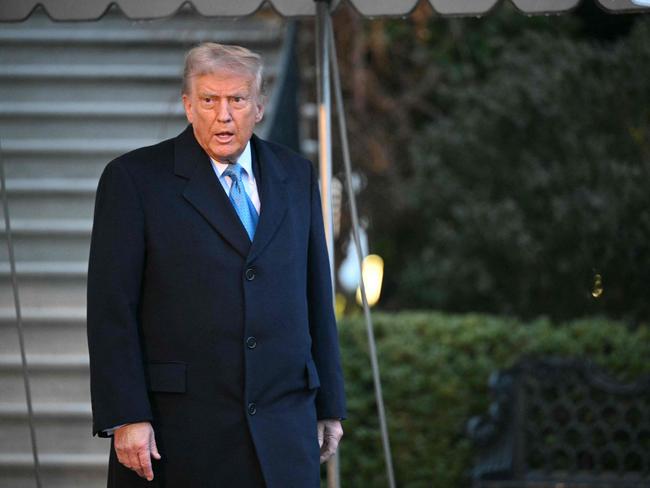
After heading to his Mar-a-Lago residence in Palm Beach, Florida from the White House, Mr. Trump signed three executive orders placing tariffs of 25 per cent on all goods from Canada and Mexico, with a slightly lower 10 per cent tariff on Canadian oil exports.
He also placed a 10 per cent tariff on Chinese goods.
White House spokeswoman Karoline Leavitt earlier said the tariffs were in response to the three nations’ tolerance of illegal fentanyl, which has led to the deaths of “tens of millions” of Americans.
It came as the US military has conducted airstrikes against a senior ISIS attack planner and other terrorists in Somalia.
Mr Trump announced on his Truth Social network that the strikes, the first military action since he took office, had been carried out.
Regarding the Somali air strikes, Mr Trump wrote: “This morning, I ordered precision military air strikes on the Senior ISIS Attack Planner and other terrorists he recruited and led in Somalia.”
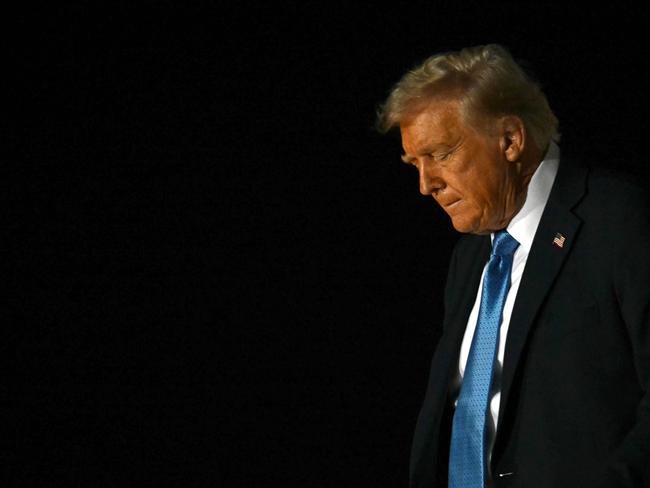
“These killers, who we found hiding in caves, threatened the United States and our Allies. “The strikes destroyed the caves they live in, and killed many terrorists without, in any way, harming civilians.
“The message to ISIS and all others who would attack Americans is that ‘WE WILL FIND YOU, AND WE WILL KILL YOU!,’” Mr Trump wrote.
Secretary of Defence Pete Hegseth said in a statement the US worked with Somalian authorities to carry out the offensive, which took out ISIS operatives in the Golis mountains in the Bari region.
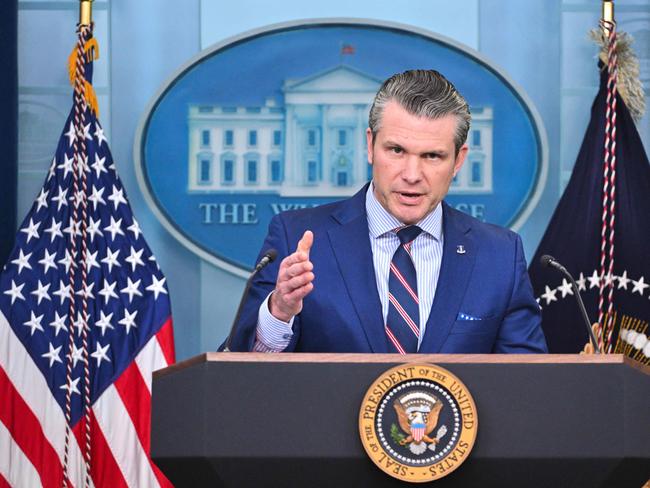
Mr Hegseth said “multiple operatives were killed” in the airstrikes, further degrading “ISIS’s ability to plot and conduct terrorist attacks threatening US citizens, our partners, and innocent civilians.”
Mr Hegseth said the strikes send “a clear signal that the United States always stands ready to find and eliminate terrorists who threaten the United States and our allies, even as we conduct robust border protection and many other operations under President Trump’s leadership.”
CHINA ‘FIRMLY OPPOSES’ NEW US TARIFFS, VOWS ‘COUNTERMEASURES’
China said it “firmly opposes” new tariffs imposed on Beijing by US President Donald Trump, vowing to take “corresponding countermeasures to resolutely safeguard our own rights and interests”.
Unveiling sweeping measures against major trade partners on Saturday, Trump announced an additional 10 per cent tariff on Chinese imports on top of existing duties.
In a statement on Sunday, China’s commerce ministry slammed Washington’s “erroneous practices”, saying Beijing was “strongly dissatisfied with this and firmly opposes it”.
The ministry said Beijing would file a lawsuit at the World Trade Organisation, arguing that “the unilateral imposition of tariffs by the United States seriously violates WTO rules”.
It added that the duties were “not only unhelpful in solving the US’s own problems, but also undermine normal economic and trade co-operation”.
“China hopes that the United States will objectively and rationally view and deal with its own issues like fentanyl, rather than threatening other countries with tariffs at every turn,” the ministry said.
It said Beijing “urges the US to correct its erroneous practices, meet China halfway, face up to its problems, have frank dialogues, strengthen co-operation and manage differences on the basis of equality, mutual benefit and mutual respect”.
In a separate statement, China’s foreign ministry said “there are no winners in a trade war or tariff war”.
“The practice of imposing additional tariffs is not constructive and will inevitably affect and damage future bilateral co-operation on drug control,” a ministry spokesperson said.
TRUMP’S $1.4TR TARIFFS MAY AFFECT AUSTRALIA
Donald Trump tougher tariffs on steel and aluminium will potentially affect Australian products.
The tariffs will impact up to $US1.4 trillion worth of goods and likely spark fierce retaliatory action.
As Mr Trump earlier prepared to whack America’s three biggest trading partners, he also revealed new details about his plans for broader duties on imports, having vowed during the election campaign to introduce universal tariffs.
Among the products he said would be targeted were steel and aluminium, increasing the tariffs he imposed during his first term in the White House in 2019.
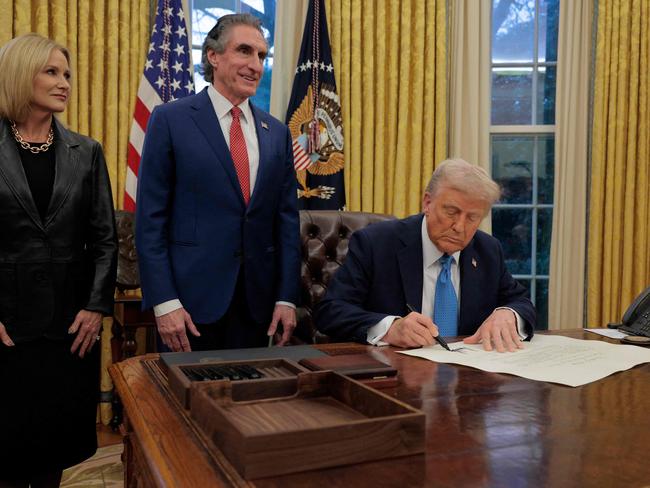
Australian steel and aluminium exports to the US were narrowly spared back then, as Mr Trump’s senior advisers cautioned against alienating one of America’s closest allies.
But the President’s sweeping warning on Friday (local time) suggested Prime Minister Anthony Albanese could have to follow Malcolm Turnbull in fighting to protect our exports.
“We’re going to put a lot of tariffs on steel. We already have tariffs on steel and we’ve saved our steel industry, but that was relatively small compared to what it’ll be,” Mr Trump said.
“We’re going to be putting tariffs on steel and aluminium and ultimately copper. That’ll happen pretty quickly.”
He also promised tariffs on semiconductors, pharmaceuticals, oil and gas “fairly soon”.
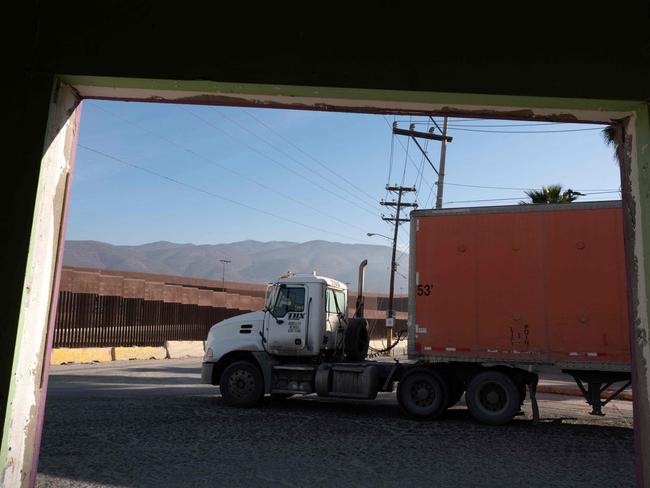
“I think there could be some temporary, short-term disruption and people will understand that,” the President told reporters in the Oval Office.
“The tariffs are going to make us very rich and very strong.”
US HAS ‘TWO-TO-ONE’ TRADE SURPLUS V AUSTRALIA
At an event at Australia’s Washington DC embassy this week, attended by Mr Trump’s National Economic Council director Kevin Hassett, Australia’s ambassador to the US Kevin Rudd made the case for Australian exports to be spared from any new tariffs.
He pointed out that the US had a two-to-one trade surplus against Australia, a surplus that continued unbroken for decades, and that Australia had not imposed tariffs against the US since a free-trade agreement was sealed two decades ago.

“Please pass that on to President Trump,” the former prime minister said.
Canada, Mexico and China are already preparing retaliatory measures to Mr Trump’s tariffs, with outgoing Canadian Prime Minister Justin Trudeau saying: “No one – on either side of the border – wants to see American tariffs on Canadian goods.”
“If the United States moves ahead, Canada’s ready with a forceful and immediate response,” he warned.
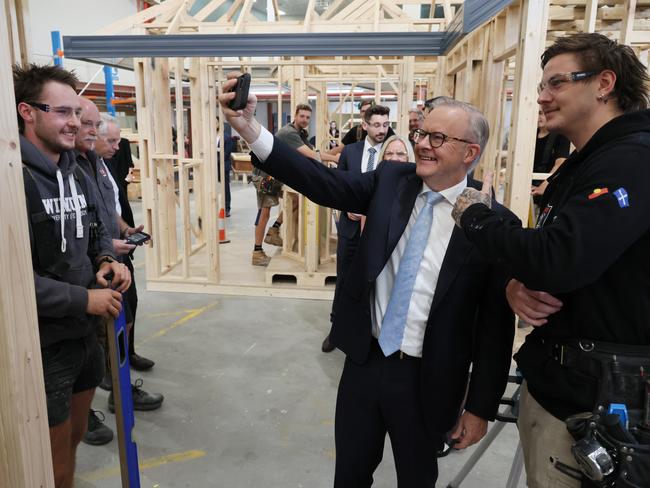
RSM chief economist Joe Brusuelas told CNN the Trump administration was “playing with fire”, given the risk tariffs would drive up inflation almost as soon as it had been brought back under control.
For instance, he said the price of avocados – sourced mostly from Mexico – would likely soar in a blow to Americans wanting to make guacamole for the Super Bowl.
‘EYES OPEN’: AUSTRALIA’S CALL ON TRUMP TARIFFS
The Albanese government is navigating the Australia-US relationship with “eyes open” after Donald Trump slapped Canada with 25 per cent tariffs, Foreign Minister Penny Wong has said.
Senator Wong said on Monday Mr Trump was “doing exactly what he said he would do, and we shouldn’t be surprised by these announcements”.
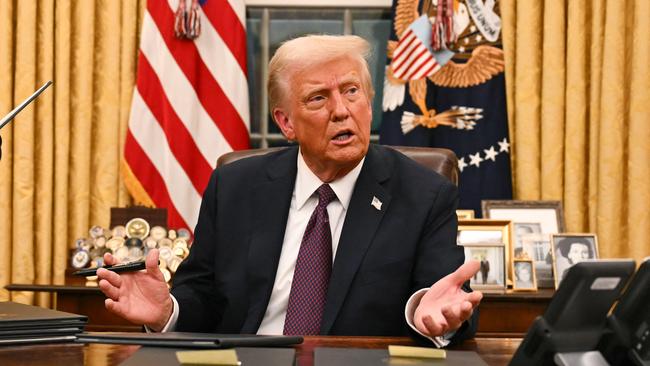
“In my engagements while I was in Washington for the inauguration, including with my counterpart, Secretary Rubio and other members of the Trump administration, I made very clear where Australia sits,” she told the ABC.
“We are a country with whom the US has a trade surplus and all goods enter from the US, under our free trade agreement, enter Australia without duties or tariffs or any other barriers.”
Asked if Canberra should stand in solidarity with the allies, like Canada, facing the receiving end of Mr Trump’s America first agenda, Senator Wong said dodged, saying instead that she “was very pleased to have engagement with the Trump administration on Australia’s behalf from the very first day of the administration commencing”.
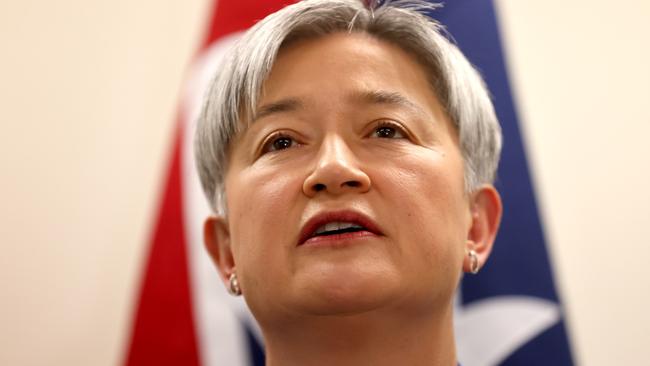
Pressed further on whether US allies, including Australia, could collectively pushback against some elements of Mr Trump’s agenda, she said against that he was “implementing the agenda he was elected to implement”.
“And I appreciate that there is a lot of commentary about it, but I’m a realist,” Senator Wong said.
“Our government will navigate this just as we have navigated the … years that since we’ve been elected to government, including strengthening and deepening our relationship with the United States.”
More Coverage
Originally published as Elon Musk given access to Treasury payments system; Canada declares war over Donald Trump’s tariffs
Read related topics:Donald Trump



